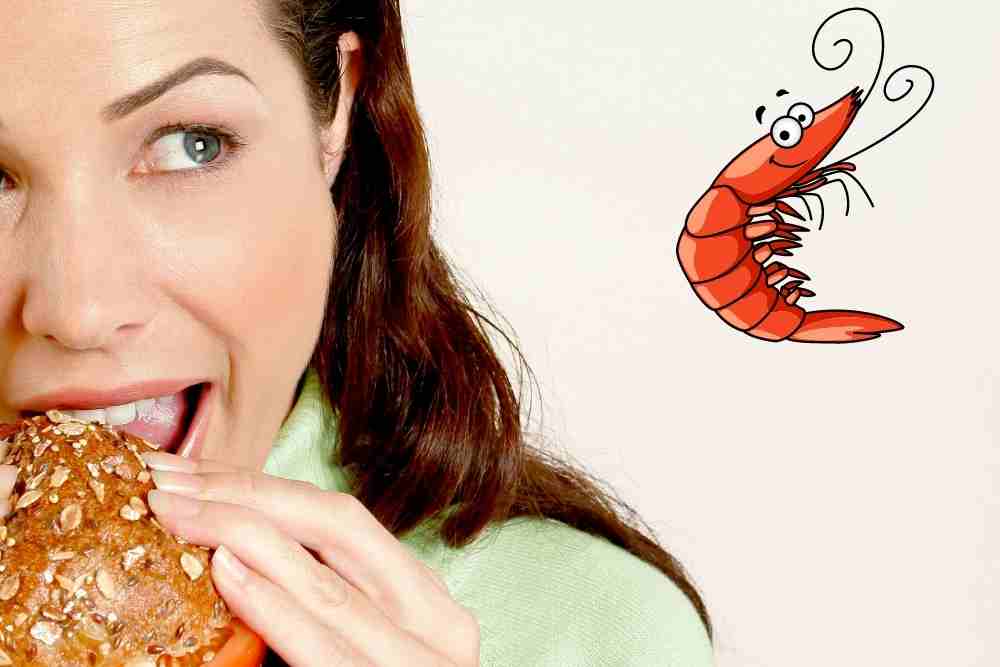Vegans do not eat shrimp as it is a form of animal cruelty. Shrimps have feeling and may feel pain, so it goes against the vegan lifestyle. If you are considering becoming a vegan, be aware that you will have to give up shrimp.
“I was shocked when I found out that some vegans do eat shrimp,” said Sarah, a vegan of three years. “I just don’t understand how they can call themselves vegans and still eat seafood.”
The truth is, there is no such thing as a “vegan seafood.” Fish and other seafood are animals, and therefore, are not vegan. Some people who identify as vegans make an exception for fish and other seafood, but this goes against the core principles of veganism.

Food Items For Vegans
There are many food items that are suitable for vegans. Some examples of these items include fruits, vegetables, grains, and beans.
These foods provide the body with essential nutrients that are necessary for good health. Additionally, they are low in calories and fat, making them an ideal choice for those who are looking to maintain a healthy weight.
A vegan diet is one that does not include any animal products, including meat, eggs, and dairy.
There are many reasons why people choose to follow a vegan diet, including health, environmental, and ethical concerns.
While a vegan diet can be healthy and nutritious, it is important to make sure that you are getting all the nutrients your body needs.
This can be a challenge, especially if you are not used to cooking without animal products.
Here are some tips for making sure you get all the nutrients you need on a vegan diet:
- Make sure you eat a variety of plant-based foods, including fruits, vegetables, whole grains, legumes, nuts, and seeds.
- Include plenty of sources of protein in your diet such as tofu, tempeh, lentils, beans, and quinoa.
Do Vegan Eat Shrimp
Shrimp are not a vegan option, while others believe that any seafood can be eaten by a vegan.
However, some vegans do include shrimp in their diets, while others avoid it entirely. Here’s a quick look at why some people choose to eat shrimp, and why others avoid it:
According to Dragnelie, Pieter C., and Francois Mariotti, vegetarianism is the habit of avoiding one or more animal-derived foods, particularly animal meat. The benefits of following a vegetarian diet have been extensively researched.
Ethical concerns about the death of animals and/or the welfare of animals are some justifications for avoiding shrimp meat and/or other animal products.
Ethically speaking, consuming shrimp has considerably more consequences than just harming animals.
Shrimping involves significant human inhumanity and environmental degradation.
Environmental factors, particularly the inefficient production of animal food from plant-based foods (both in terms of calories and protein) in light of the global food crisis and the expanding global population; Health-related grounds, including the idea that consuming a lot of animal products with a lot of saturated fats is linked to a wide range of ailments in wealthy nations.
The presence of pollutants, chemicals, or other unwelcome things in animal products, as well as a dislike of particular animal food kinds, may be additional health factors.
This is a very typical excuse for staying away from a certain sort of animal food, such as a particular kind of fish, shrimp, chicken, pork, beef, lamb, etc.
Why Shrimp is Not Recommended for Vegetarian
Shrimp is not recommended for vegetarians because it contains high levels of cholesterol and unhealthy fats. A 3-ounce serving of shrimp contains more than 200 milligrams of cholesterol, which is more than half the amount most people should have in a day.
Shrimp also contains high levels of unhealthy saturated and omega-6 fatty acids. These fatty acids can increase the risk of heart disease, stroke, and other chronic diseases.
Shrimp is a seafood that is not recommended for vegetarians. While it does not contain any meat, shrimp is high in cholesterol and unhealthy fats. For this reason, shrimp is best avoided by people who are trying to eat healthy.
